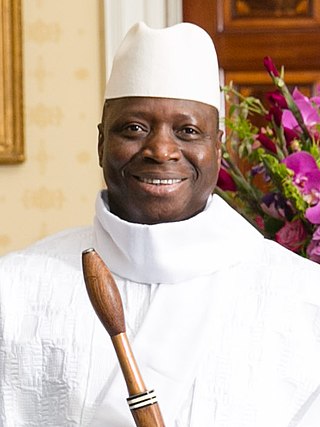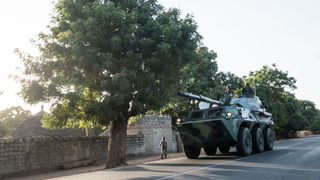Background

On 8 March 2000, 19-year-old secondary school student Ebrima Barry was murdered by firefighters in Brikama, West Coast Division. Barry's teacher, a Mr Paul, had called firefighters to the school after Barry had insulted him, in order to remove Barry from the classroom, as he was afraid of a physical altercation. However, the firefighters not only removed him from the school but took him to their station where they shaved his head, beat him, forced him to carry heavy bags of cement, stripped him naked, poured cement on him and finally put cement in his mouth and forced him to swallow it. He was able to get home that night but died the next day from his injuries. Later in the week, students from Barry's secondary school converged on the local fire station in protest but were dispersed by police officers. [1]
The government failed to investigate the matter, leading to the Gambia Student Union (GAMSU) leadership calling for an inquiry. The government, besides expressing surprise that firefighters had been asked to discipline a student, made no further move to investigate the matter. An autopsy report was released which stated that Barry had died of natural causes. The report was widely perceived to be a cover-up. A spontaneous protest ensued at The Gambia College, where GAMSU was active, as well as at other schools. The courts eventually charged seven firefighters with participating in Barry's death, but all seven were acquitted on 2 March 2001. [1] [2]
Concurrently with the developments surrounding Barry's murder, a 13-year-old girl, known in the press as Binta, was allegedly raped by a uniformed paramilitary police officer (part of the Police Intervention Unit) at the Independence Stadium during an inter-schools sports competition. A medical examination confirmed that the girl had been raped, and GAMSU again pressed the government for answers, calling for the girl to be allowed to identify the rapist. Following a long delay in any government action, GAMSU requested a police permit to hold a public protest. The request was denied, but, referring to their constitutional right to protest, GAMSU called its members to take part in a peaceful march towards the capital city of Banjul. [2]






